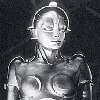Today is Christmas in the year of our Lord 2013 a decade before Peter Weyland is
1996 Views29 RepliesForum Topic
nostromo001
MemberOvomorphDecember 25, 2012The first thing Janek did was put together a small Christmas tree much to the chagrin of Vickers, who challenged him as to why he was putting it up. He answered it was to mark the passage of time and said She apparently hadn't spend much time out in deep space. It was Christmas day when they arrived on LV223 in the year of our Lord 2093. That phrase was used more than once and the christian element played a significant role in the movie. The carbon dating showed the disaster on LV223 involving the Engineers took place approximately 2000 years ago, a very significant era in human history as we all know it as being the approximate date of the life of Jesus of Nazareth. Dr Shaw never took her crucifix off for long if she could help it and she never lost her Christian faith. So in that spirit I would like to wish all here once and for all a very merry Christmas in this year of our Lord 2013. According to Ridley Scott, in a scant 80 years the Prometheus will be entering the target threshold of LV223. If Peter Weyland is right, the speed of technology being exponential in nature is now close to the vertical slope of the curve at which point it becomes impossible to predict just what we may discover right around the corner. Watch his TED speech in 2023, a mere decade from now. M theory is already being explored and quantum teleportation of particles has just been experimentally demonstrated providing strong support for quantum mechanics. I believe the next great discovery that will radically alter the capacity of the human race will e the development of gravity engines to warp space time allowing us to either travel through time or space time in an instant. Mark my words, and that's if we don't manage to destroy ourselves through our immature and violent natures. May we survive our base natures and reach for the stars like the Science Fiction that we watch and read!!!
[img]http://0.tqn.com/d/chemistry/1/0/E/1/1/chemistry-glassware.jpg[/img]
December 25, 2012
PS that title is supposed to end with 'Peter Weyland is slated to give a TED speech concerning the future of mankind'.
[img]http://0.tqn.com/d/chemistry/1/0/E/1/1/chemistry-glassware.jpg[/img]
December 25, 2012
Thanks for your comments. It is good that there are some us thinking this Christmas day.
Do you think that Weyland, because of his 'god thinking' could have planned the arrival of Prometheus at the moon that far in advance?
Maybe it was just a coincidence.
Yea in few years we may all be asking for a Mars Vacation.
Enjoy this day..and everyday.
Be choicelessly aware as you move through life
December 25, 2012
".. gravity engines to warp space time ,,"
I selected the DVD set of Through The Wormhole'..
I had watched a few episodes and found them intriging and thought provoking.
The expalnations fro various subjects were somewhat understandable but I require a few more viewing to gtasp the full meaning.
PLease don't tell me the presentations are based on false Scientific data and let me just explore a new territory for my mind.
This space time warp is very intersting and I hope, nostromo001,
you can add your thoughts on the subject when appropriate,
Be choicelessly aware as you move through life
December 25, 2012
I would ... not necessarily encourage someone to use anything like "Through the worm-hole" or anything whatsoever where Michio Kaku appears as a realistic depiction of what we are likely to find/have in the short term. Or mid term. Or, really, ever, but I'm trying to be diplomatic and not too much of a party-pooper.
Merry Christmas.
On the topic of going to the stars- well, for now warp engines and wormhole generators are, to put it tactfully, very deeply buried in theory. Also theoretical, however plausible as a first step in that direction, is [url=http://arxiv.org/pdf/0908.1803.pdf]the Black Hole Starship idea[/url] (warning PDF link).
The thing is, black holes radiate (Hawking radiation), and the smaller they are, the more intense they radiate. You could therefore chuck mass into a black hole (but not too much) and have it converted to energy, 100%. It's like the matter antimatter reaction, only better because you get to keep the black hole (whereas antimatter would be used up) and funnily enough, it's easier to contain (certain kinds of) black holes than it is to contain antimatter.
Why even a party-pooper like me loves this idea? Because it's simultaneously within physics as we know it today AND it provides an experimental test bed for quantum gravity effects and unification theories in general.
The whole point of this is lost if you keep it a secret.
December 25, 2012
I don't think Vickers was upset about the Xmas tree - she didn't even know what it was. She was more worried about Janek attending the mission meeting - which interestingly, he didn't.
Notice that no one paid one iota of attention to the Xmas tree nor did anyone, including Shaw, wish anyone a merry Xmas.
And Shaw's belief - that mortals with human DNA created humans - is not mentioned in the Bible anywhere. It would seem that her beliefs leave god and his son right out of the picture.
There's only some poor circumstantial evidence that Shaw is a christian - her father gave her a cross. It's more likely she cherished the cross because her father gave it to her. He could have given her any symbol to hang around her neck and she would have cherished it just as much.
Remember that Holloway's ring also inspired her when she had given up. Why? Because it came from someone she loved. It doesn't mean she now believes Gandalf is god.
The whole christian thing is just a red herring. Although the cross may have some importance in the sequel.
December 25, 2012
Java I couldn't disagrees more about Shaw not being a Christian. Even David pointed it out at the end when he said "Even after all thats happened you still believe." Weyland wanted her on board because she was a person of faith, and I am not only referring to faith in her research. He was superstitious according to Vickers. Shaw's father was a Christian missionary working with underdeveloped or primitive peoples and also an archaeologist or cultural anthropologist from what I have read. He is the one who instilled in her that idea that faith, which could be defined as choosing to believe in something without scientific proof, was a valuable attribute. She was a Christian because he was and she lost both of her parents, her father to Ebola, so she clung to Christian faith as a coping mechanism I suspect.
Indy, I haven't seen 'Through the wormhole' but unlike BLANDC, I have read a few of Dr Michio Kaku's books on String theory and he is the real McCoy when it comes to modern physics. Look at what a brief bio is written about him on line:
"At Cubberley High School in Palo Alto, Kaku assembled an atom smasher in his parents' garage for a science fair project. His admitted goal was to generate "a beam of gamma rays powerful enough to create antimatter."[1] At the National Science Fair in Albuquerque, New Mexico, he attracted the attention of physicist Edward Teller, who took Kaku as a protégé, awarding him the Hertz Engineering Scholarship. Kaku graduated summa cum laude from Harvard University in 1968 and was first in his physics class. He attended the Berkeley Radiation Laboratory at the University of California, Berkeley and received a Ph.D. in 1972, and in 1972 he held a lectureship at Princeton University.
During the Vietnam War, Kaku completed his U.S. Army basic training at Fort Benning, Georgia and his advanced individual training at Fort Lewis, Washington.[2] However, the Vietnam War ended before he was deployed as an infantryman.
Academic career
Kaku became a visiting professor at the Institute for Advanced Study in Princeton,[3] and New York University.[4] He currently holds the Henry Semat Chair and Professorship in theoretical physics at the City College of New York.[5]
Kaku has had over 70 articles published in physics journals such as Physical Review, covering topics such as superstring theory, supergravity, supersymmetry, and hadronic physics.[6] In 1974, along with Prof. Keiji Kikkawa of Osaka University, he authored the first papers describing string theory in a field form.[7][8]
Kaku is the author of several textbooks on string theory and quantum field theory.
References
1. Kaku, Michio. "Physics of the Impossible". p. xi. Doubleday. Retrieved 9 July 2011.
2. Kaku, Michio (1994). Hyperspace: a scientific odyssey through parallel universes, time warps, and the tenth dimension. Oxford University Press US. pp. 146. ISBN 0-19-508514-0.
3. "Previous People". Institute for Advanced Study.
4. Hua, Long; Michio Kaku (1994). "Non-polynomial closed string field theory". Thesis (Ph.D.) New York University: 107 p..
5. "Physics Department". The City College of New York.
6. "List of research papers in American Physical Society Journals".
7. Kaku, Michio; Michio Kaku and K. Kikkawa (15). "Field theory of relativistic strings. I. Trees". Physical Review D 10 (4): 1110–1133. Bibcode 1974PhRvD..10.1110K. doi:10.1103/PhysRevD.10.1110.
8. Kaku, Michio; Michio Kaku and K. Kikkawa (1974). "Field theory of relativistic strings. II. Loops and Pomerons". Phys. Rev. D. 1110 10 (6): 1823–1843. Bibcode 1974PhRvD..10.1823K. doi:10.1103/PhysRevD.10.1823."
While this info came from wiki, it is all commonly known and I included the references so anyone could look them up if they choose and also because I wanted to demonstrate the level of authorship that is necessary in the scientific world including grad school. As you can see Edward Teller thought highly of him and that is high praise considering that Teller is commonly referred to as the father of the atomic bomb. Also, they don't just let anyone lecture at Princeton either. I have always held him in high regard after reading his books on string theory which were distilled from his text books and articles on the subject. One of his abilities includes being able to bring lofty topics of theoretical physics down to the level of an educated layman, which requires good communication and reasoning skills. There may be a lot of unqualified quacks out there but Dr Kaku is certainly not one of them. I am a Chemist by education and so I refer to people like Dr Kaku to provide me with information from the field that he is expert in, as none of us has the time to become expert in multiple scientific subjects. Grad school forces you to focus and become expert in one area in depth at the exclusion of other areas. So you learn more and more about less and less, but in the end you develop a reasoning skill set that serves you well in the analysis of areas outside of your area of expertise. Indy I will check out "Through the worm-hole" when I get a chance. And BLANDC, I have aready copied your link on black hole star ships and look forward to reading that as well! Thanks for the info.
[img]http://0.tqn.com/d/chemistry/1/0/E/1/1/chemistry-glassware.jpg[/img]
December 25, 2012
PS Indy, I don't think that Weyland planned the arrival of the Prometheus at LV223 just in time for Christmas. Its a metaphoric coincidence that is part of the subconscious subtext of the story.
[img]http://0.tqn.com/d/chemistry/1/0/E/1/1/chemistry-glassware.jpg[/img]
December 26, 2012
Come on, Nostro, you're a scientist. Let's stick to what we can know from the movie.
!. There is no indication of what Shaw's father was doing in Africa. It isn't mentioned. Nor is it made clear what religion he was although we can assume from the cross he may have been christian. During the dream, the young Shaw never asks about or mentions god or Jesus. This is true of the whole movie.
2. Vickers says Weyland wanted "a true believer on board." Given she doesn't even know what a Xmas tree is, it's very doubtful she's talking about the Christian faith.
3. When David asks "Even after all that's happened you still believe?" he doesn't specify believe what. He could be talking about her theory. And how does Shaw react - she ignores him. The same as she does earlier when David asks her about god.
4. Shaw got through the most exacting test she had in the movie - the birthing - without the cross. It was replaced by Holloway's ring, which strongly indicates what is important for Shaw - people she loved in her life - that's what the cross and the ring represent, not Jesus.
5. Shaw remains focused on one belief throughout the movie - that the engineers made humans - even when she knows they are not supernatural but mortals with human DNA.
6. Show in the Bible where it says Yahweh was a big white dude with human DNA. If you can show me how Shaw's beliefs - as shown in the movie - fit in with Christian doctrine, then maybe you have a case. As it stands now her views are a heresy.
And Ridley is not going to have his heroine being inspired by one particular religious figure - it's an international movie, not just for audiences in Alabama.
If you really look at the movie, it is Shaw who represents science (despite some very dodgy moments) and Holloway who represents religious feeling.
Ridley has used the image of the cross like a hypnotist’s watch.
December 26, 2012
irt. [b]nostromo001[/b]:
If Kaku were a quack, this would be so easy; alas, he's simply a physicist doing pop-sci, and ever since Feynman died that combination has rarely produced anything accurate.
Watching stuff like TtWH you'd get the impression that String Theory is a done, proven deal. This is [url=http://en.wikipedia.org/wiki/String_Theory#Criticisms]notoriously untrue[/url], and for more data on a kind of overview of the subject, [url=http://www.math.columbia.edu/~woit/wordpress/?p=5358]see this post by Peter Woit[/url] (another physicist, critical of ST), reviewing a collection of articles, both from proponents and opponents, called [url=http://link.springer.com/article/10.1007/s10701-012-9691-3]Forty years of String Theory- Reflecting on the foundations[/url].
Also, every time one strays into talking about worm holes, warp drives and whatever other 'physics of the impossible' topics, one necessarily jumps beyond what is known into what is speculated, but the tone is misleading into suggesting that those speculations will be proven just around the corner. Which, given the energy scales required, is unlikely.
And while I can't speak for everyone, knowing a bit of physics and watching something like TtWH (or, dear Lord, a certain doc on Q.E.D.) seems actively reducing knowledge to me. The presentation attempts to blow one's mind, with rather cheesy 'practical experiments' that have nothing to do with the phenomenon discussed, there's very little indication of how the mathematics of the theory works (and you can do that at a popular level, read [url=http://www.amazon.co.uk/QED-Strange-Theory-Penguin-Science/dp/0140125051/ref=sr_1_1?ie=UTF8&qid=1356526080&sr=8-1]Feynman's QED[/url])[b]***[/b], there's little to no indication of how it fits in with previous physics, and very little indication that anyone bothers with experimental tests.
If one wants a challenging- and I do mean challenging- presentation of modern physics, I recommend [url=http://www.amazon.co.uk/Road-Reality-Complete-Guide-Universe/dp/0099440687/ref=sr_1_1?s=books&ie=UTF8&qid=1356526361&sr=1-1]Penrose's 'The Road to Reality'[/url][b]***[/b]. Door-stopper book and a casual assumption of mathematical knowledge makes it a rather tough read, but it's very broad and deep in scope, and Penrose clearly flags what's established as apart from what is still just theoretical, in particular his own pet ideas.
***: if links to books on amazon that are relevant to a discussion are not kosher, I apologize. Tell me and it won't happen again.
The whole point of this is lost if you keep it a secret.
December 26, 2012
Nostromo your opinion just out of curiosity, and taking into consideration that i have very little knowledge of physics, but instead (dont laugh) 'instincts' (i refuse to misuse the word belief) that string, loop, bubble theory are all wildly theoretical ideas being offered up as fact, and that dare i say it again large wads of the 'laws' of physics arent actually proven funny that that physics has 'Laws' i thinks there is a deep seated fear of admitting that we really dont know shit about how the universe works! xD we look out into the night sky and see formidable forces of physics we cant predict the behaviour of and its worse than not having a god to count on! if i argue to people that there may be no god/heaven/divinejustice/soul/afterlife many can handle that but if i say no big bang no space/time they mostly flip-out! it worse to them! funny no?
I LIKE WORMS! I LOVE WORMS!
December 26, 2012
My opinion wasn't asked, but I'll give it anyway, lol.
irt. [b]caenorhabhditis[/b]: Science in general has "Laws" to distinguish some statements from "Theories".
A "Law" is a regular pattern that you can observe. In Newton's famous words, "I suggest no hypothesis {as to why it is thusly}". A "Theory" is an explanation of why a particular pattern exists.
The typical example is the Law of gravity (discovered by Newton) which is just an equation describing how gravity behaves, vs. the Theory of General Relativity (discovered by Einstein) which says that gravity works by curving the geometry of space-time.
The character of scientific knowledge is provisional. You can't quite completely eliminate uncertainty, ever. There is however some hope that we are not wildly wrong in what we think we know, because of something called [url=http://en.wikipedia.org/wiki/Classical_limit]the classical limit[/url] (or rather, a generalization of that).
Basically, the models we have of the world [i]work[/i], and we test them each day with our technology. These models have certain ranges of validity inside which they work well, and ranges when they cease to do so and need replacing by a newer theory. Classical mechanics, for example, is 'correct' until you hit large velocities and/or large masses and/or tiny scales. Newer, more exotic physics theories are always built so as to recover classical mechanics once classical conditions are resumed.
General relativity may not be a complete theory of gravity, for example. But it's what allows GPS to stay synchronized, so whatever theory replaces it will replicate that behavior.
So to get 'new' and exciting physics, you do one of two things. Either go into more exotic conditions (what particle accelerators are trying to do, probing ever higher energy scales) OR explore systems that, while they could be analyzed with present day theories in principle, are difficult to analyze in practice.
[url=http://en.wikipedia.org/wiki/Quantum_electrodynamics]QED[/url], at the moment, appears to be the (just about) definitive theory of light-matter interaction; any interaction involving electrically charged particles and photons is described and predictable by it.
Which includes all of chemistry.
A casual look at chemical research will reveal loads of new and surprising results however. Just having QED doesn't mean we know what questions to ask of it, nor does it mean that we can efficiently compute answers.
The whole point of this is lost if you keep it a secret.
December 26, 2012
Some excellent posts, Corpo (I can't bring myself to call you Bland).
If anyone wants a layman's introduction to science, Bill Bryson's [i]A History of Nearly Everything[/i] is a great read. [i]The Sleepwalkers: A History of Man's Changing Vision of the Universe[/i] by Arthur Koestler is a bit old but still worth a look. Others include [i]Big Bang[/i] by Simon Singh; any of John Gribbin's history of science books and, stepping up a bit, Brian Greene's [i]The Fabric of the Cosmos[/i].
If you want get more serious, try The Teaching Company lectures. They're expensive but this is the internet and there are other bays to get them. Not just science but close to anything.
What we really need though is a strong explanatory theory for Prometheus.
December 26, 2012
@ caenorhabhditis
String Theory and other similar theories are actually mathematical (the language of physics) theories. They are not wild theories. They "work" in the maths but to be scientific theories they have to make predictions that can be observed and tested. So far, String Theory, while promising as a mathematical model, has failed to produce anything that can be tested.
I don't think there's a deep seated fear about what we know or don't know. Fear is for people who need an invisible friend to explain everything.
December 26, 2012
"..The whole christian thing is just a red herring.."
@javablue
I am sort of thinking that you may be right. If we find our creater is not a God that humans worship then what?
A poster mentioned that Shaw birthed the alien while not wearing the Cross. This could be important to the Christian storyline but would it would be crucial when we find that our Creaters were not known to us?
Who knows what Ridley thinking was to create Prometheus in the movie world but he sure has people talking about some meaningful subjects to earthlings!
Be choicelessly aware as you move through life
December 26, 2012
@BLANDCorporatio
I recall a Scientist when being asked about God/Religion/Spiritual beliefs saying if he needed to believe in something he would believe in Gravity.
There is side humanity that seems to want to believe in something beyond the known.
Gravity might be a good start because it is something that can be experienced by all humans.
To me this sort of falls in line with your notes about 'Laws' and 'Theory'.
Sometimes it is hard to express thoughts in(to paraphase Fifield) in the 'Scientific Arena'. That is why I always read your notes.
Be choicelessly aware as you move through life
December 27, 2012
Boy so may ideas and opinions here I scarcely know where to begin so i will pick and choose as I go along as this is not a formal treaty on the modern state of physics. Keep in mind that I am a Chemist not a Physicist so I am stepping a bit out of my area of expertise. That being said, in an effort to qualify my statements to follow I will continue. For the record string theory is just that, an inciting but totally unproven THEORY. If I gave the impression that I am a proponent of string theory than I have misrepresented myself or others have read more into my statements than I intended. String theory works by simply adding additional variables representing dimentions until all of the forces of nature can be accounted for. As I remember that required about 13 or more dimension just like classical physics uses 4, i,e the three variables space = x,y,and z or 3-space and t for time. From that you can derive velocity, momentum, acceleration and all the classical dimensions and forces. This was the physics that Newton derived more or less inventing the Calculus to do so and in the macroscopic world it generally works. As someone above pointed it out, Newtonian physics begins to break down at the submicroscopic level which is the realm of quantum mechanics and that is just now beginning to find support in high energy particle collision experiments which demonstrate particles being observed by instrumentation to be in two places at the same time as we understand time-space. Of course there is always the chance that we are completely misunderstood in our fundamental understanding of the universe itself. Now they have been for the last few decades coining and developing a variantion on string theory called m-theory, mentioned by Peter Weyland in the Luke Scott directed TED 2023 talk, which is related to the concept of the multiverse to take into account the extra dimensions beyond the 4 normally thought of. Keep in mind that we are now entering the world of the extremely hypothetical edge of known physics and so this is at the membrane of what litttle we can demonstrate through reproducible experimentation and sheer mystery. A real scientist should be able to stuff his ego enough to admit to the layman that the wizard of oz behind the curtain is really the emperor with no clothes. In short we really don't have the answers big or otherwise. What we really have is the questions. Lots of questions and we use a combination of physical experimentation, thought experiments like Einstein was so famous for (which in his case increasingly have been shown to be correct as we develop experiments that allow us to observe data in support of his work).
In the area of spirituality, if we are wholly honest with ourselves, and there should here certainly be no reason not to be honest with ourselves and others or else we are hypocritical liars, all we can say without going out on a hypothetical limb is that we really do not have spiritual answers, only questions - just like the dilemma that we scientists find ourselves in. Lots of questions but no answers. Its called the human condition, the true state of the human being, smack dab in the middle of an enormous mystery that is a cosmological and infinitely huge unknown. Of course we can not abide the insecurity and anxiety brought on by not clinging to a solid set of mythical archetypes, symbols and motifs which we accept as the various flavors of religion. All of these including the religion of axiomatic statements that is perhaps the greatest modern religion of the world, science. Yes you heard me say it: Science is a set of popularly accepted axioms that make up a consensualy held set of beliefs that are more a religion than a secular view of reality. There are a huge number of egotistic and arrogant individuals who have become incapable of seeing through the precepts of science to see that the emperor in reality has no clothes on. For myself I am an agnostic because I am an equal opportunity observer of both the theories and hypotheses of science and the faith-based precepts of religion. Is there an afterlife or paradise? Are we here for some learning purpose of are we the products of some form of order out of chaos? In truth we do not know and that is the real state of affaires in the human condition that we all live in until we die. So quantum mechanics, Newtonian physics, Einsteins theories of special and general relativity, string theory, m-theory, Buddhism, Yoga, Christianity, Islam, etc... they are all the products of the incredibly imaginative minds of man to fill that huge void within with pat answers so we can feel better about life and provide us with the courage to get out of bed in the morning and get on with our days until that fateful day when we no longer wake up or fall asleep for the last time like the replicant Roy Batty after he delivered that beautiful soliloquy at the end of Blade Runner I, or one of my favorites, the final poem delivered with great eloquence by Lewis Carrol at the end of 'Through the Looking Glass':
A boat beneath a sunny sky,
Lingering onward dreamily
In an evening in July --
Children three that nestle near,
Eager eye and willing ear,
Pleased a simple tale to hear.
Long has paled that sunny sky:
Echoes fade and memories die:
Autumn frosts have slain July.
Still she haunts me phantomwise,
Alice moving under skies
Never seen by waking eyes.
Children yet the tale to hear,
Eager eye and willing ear,
Lovingly shall nestle near.
In a Wonderland they lie,
Dreaming as the days go by,
Dreaming as the summers die:
Ever drifting down the stream --
Lingering in the golden gleam --
Life what is it but a dream?
The final poem is an acrostic. The first letter of each line when put together spells out the name of the protagonist and child friend of Lewis Carrol, Alice Pleasance Liddell.
[img]http://0.tqn.com/d/chemistry/1/0/E/1/1/chemistry-glassware.jpg[/img]
December 27, 2012
That was beautiful.
I do have a lot of sympathy for spirituality. No really, I do, even though you may find me too often saying 'you don't know this'/'you can't do that'/'we actually do know this'.
There's this kneejerk reaction in many atheists today (of which I am not one) to dismiss any comparison between their approach, or science, and religion.
These things go in circles, and the pendulum is swinging that way again. See, at the end of the 19th century we thought we had things well figured out. Not just scientifically, mind. The world seemed to be reaching some stable political state.
And then the world ended. Apocalypse rarely means that everyone dies. What die are world-views. Faith in a loving and active God, for my money, died with the 30 Years War which ushered in the Enlightenment age. Faith in scientific/technological progress resulting in moral progress was killed by World War One.
I wasn't alive in the 20s and 30s, but they appear to be years when people sought new answer in radical politics. To get a taste of the age, everyone who was anyone in Europe's art scene was either communist or fascist, basically.
The hope that politics will save us died in World War Two.
After that, it appears the Postmodernism reared its ugly head. Everything was a social construct, everything was equally (in)valid. Science was equated with another new kind of delusion, logic merely enabling you to be wrong with authority.
The blasted PoMo beast is not quite dead yet, but its power has waned considerably in recent years. The pendulum is swinging the other way now to a scientism that does border on religious fanaticism.
Me, of course I prefer the bland middle. Science is the product of people, human ideas marshaled to answer questions of human interest. But, while we may not have absolute certain knowledge, there's enough indication that we know things, to some extent, that aren't too far off from whatever's actually going on.
It should also be understood that science, when properly pursued, is completely amoral. Science is about what [b]is[/b]. It's a great tool to get you where you want to go. Deciding where it is that you want to go, deciding what [b]should be[/b], is a different beast entirely.
The whole point of this is lost if you keep it a secret.
December 27, 2012
fascinating answers from all, i guess i have always been suspicious of the work of mathematicians and physicists, and maybe unfairly for the most part, in essence its because they rely alot on equations which can be tailor designed and being passionate about a theory "inventive data handling" can occur. Scientists need the drive of passion as long as they dont fall so in love with a theory that they ignore the facts or lack of data to keep it alive. Anyway i think what i was trying to get at was that i feel that in some ways science is the direct replacement for religion to give a sense of existential stability and certainty, which is understandable but people should be aware of it if we are to be truly scientific.
I LIKE WORMS! I LOVE WORMS!
December 27, 2012
caenorhabhditis, while it is true that scientists who deal with mathematics equations could just make them up, there is a peer review process in place where other scientists can challenge their work and if they reach consensus, the new mathematics may come to be accepted. In my experience, as an applied scientist, one works from empirical precepts first and if all goes well recognize natural patterns in their data that when plotted generates a mathematically recognizable curve, that through their experience produces a function of the independent variable resulting in a complete equation. I was fortunate to experience this in my dissertation research where I discovered an exponential curve when I plotted affinity chromatography retention times, against Isothermal titration calorimetry binding constants. Recognition of a clearly apparent exponential curve allowed me to use the trend line function in MS Excell to generate an exponential function, but better than that was what happened when I converted the y axis data to its natural log: I got a straight line and a linear equation with a R squared coefficient of 0.99! In other words the data provided me with a beautiful linear correlation that allowed me to predict binding constants for my molecules based upon affinity retention times. So you see the equations were not just pulled out of thin air, they were discovered from actual experimental data. The R squared value so close to unity demonstrated the accuracy of the relationship. That is how mathematics are used in applied science. Now theoretical physicist have a different methodology that they use to derive their equations but while I may not be trained in their methods, I have read Einstein and he utilized thought experiments, and was greatly criticized for it especially by German scientists who drove him out of Germany because he was Jewish. It was during the beginning of the Holocaust and they criticized his thought experiments as 'Jewish Science' and therefore non-aryan and so flawed. History proved them wrong and for their racism they lost one of the finest minds of their time, who came up with the mathematics resulting in the atomic bomb under the Allies known as the Manhattan project. Sorry for the hardcore scientific description of a real life experiment, but i just wanted the readers to see where scientific equations come from in a real life context. Of course the opposite happens too and the data results in chaotic patterns that will not integrate into any recognizable pattern and so you just go back to the drawing board. For every successful result there are usually about 10 unsuccessful ones so when you do get good publishable results its time for Champagne! In Prometheus Holloway should not have reacted as he did with disappointment for this reason. They really did make what would have been the greatest discovery known to man. He had no right to have unrealistic expectations as an experienced scientist.
[img]http://0.tqn.com/d/chemistry/1/0/E/1/1/chemistry-glassware.jpg[/img]
December 27, 2012
".. He had no right to have unrealistic expectations as an experienced scientist.."
How would an experience Scientist express his expectations in reference to our movie?
Knowing that other scientist would be sceptical of any new theory or equasions that would motivate me to check and double check the proposal. Nobody wants to look foolish at the hands of any peer group.
@nostromo001
Thanks for your post.
Be choicelessly aware as you move through life















